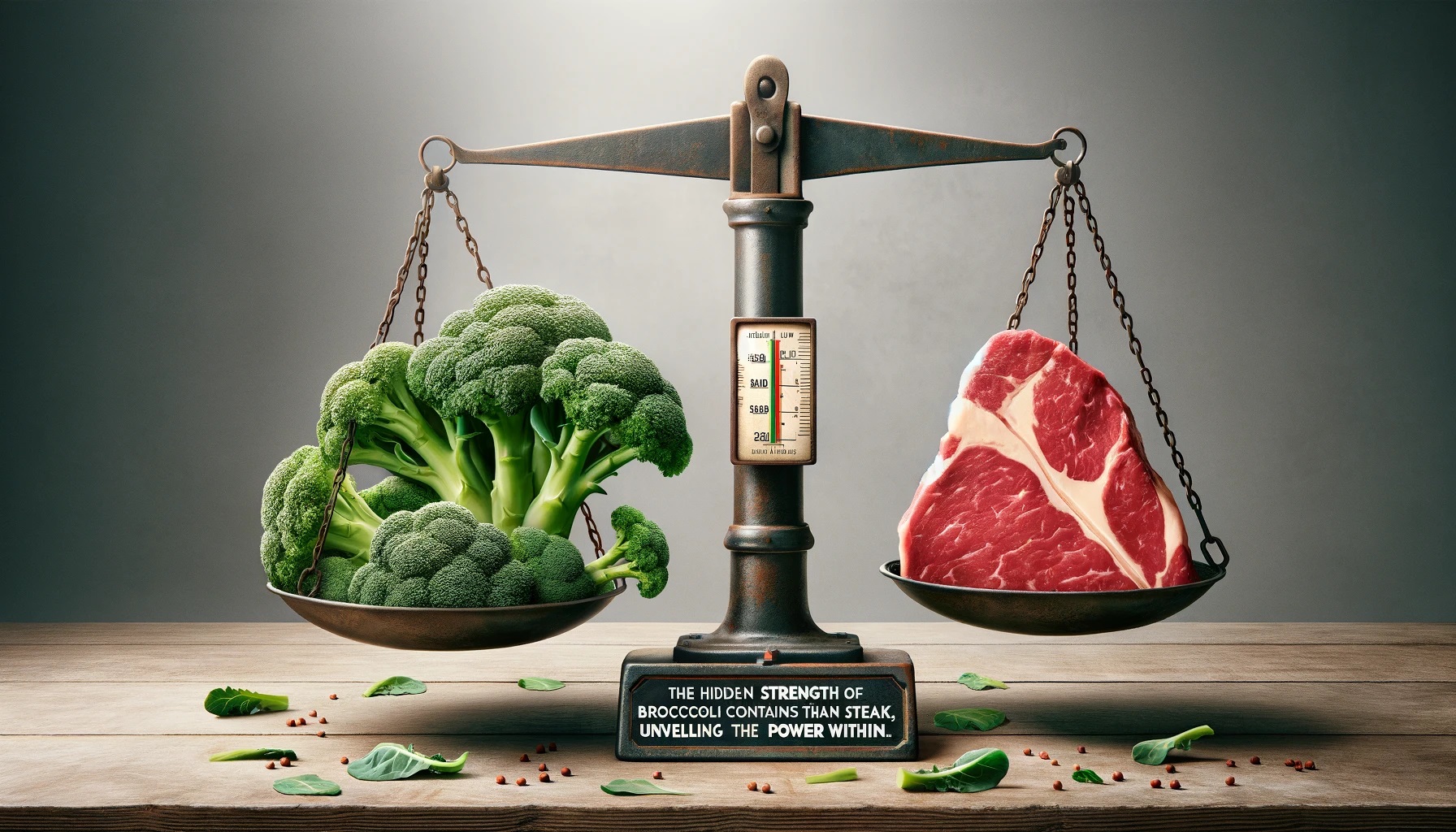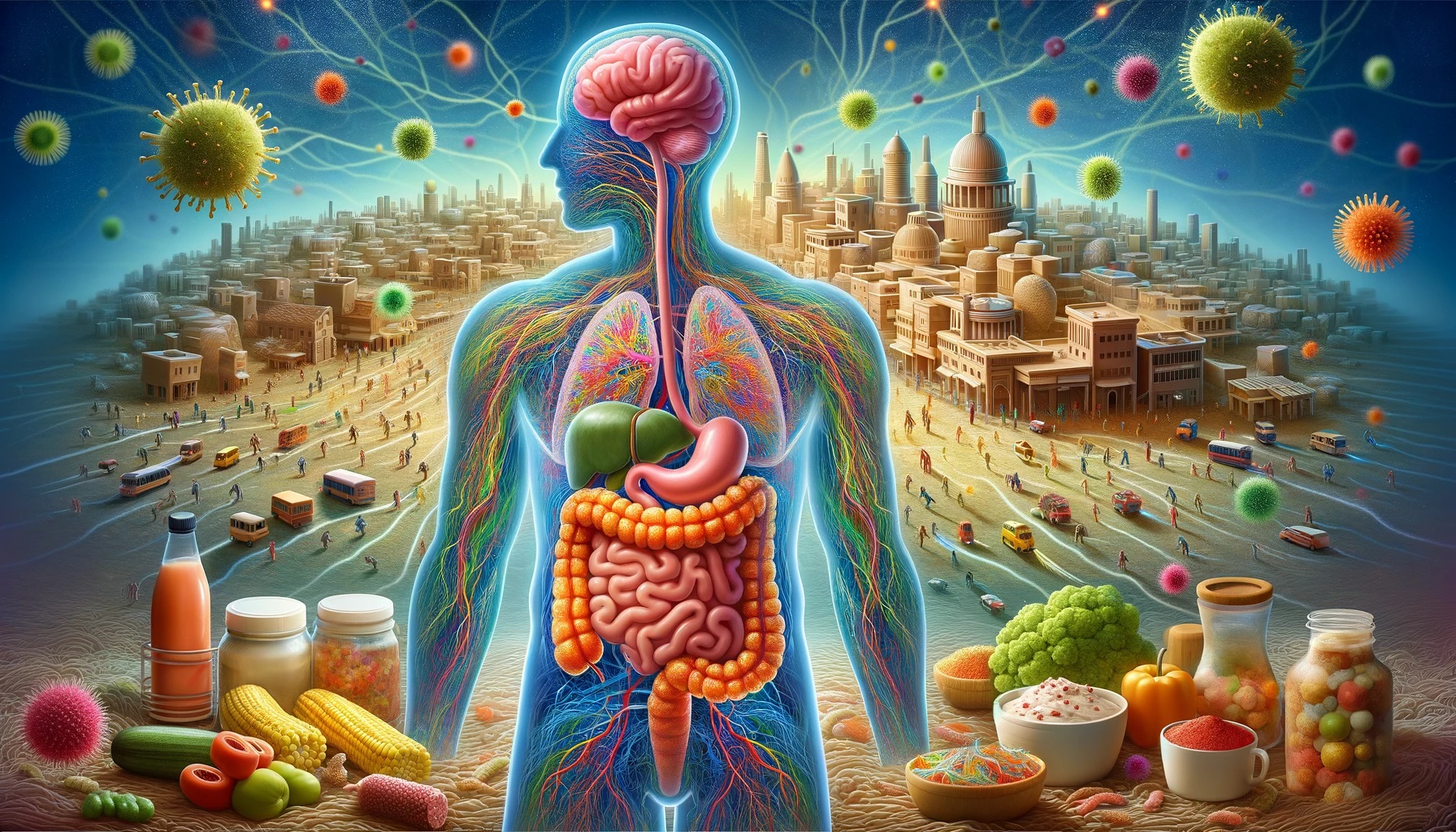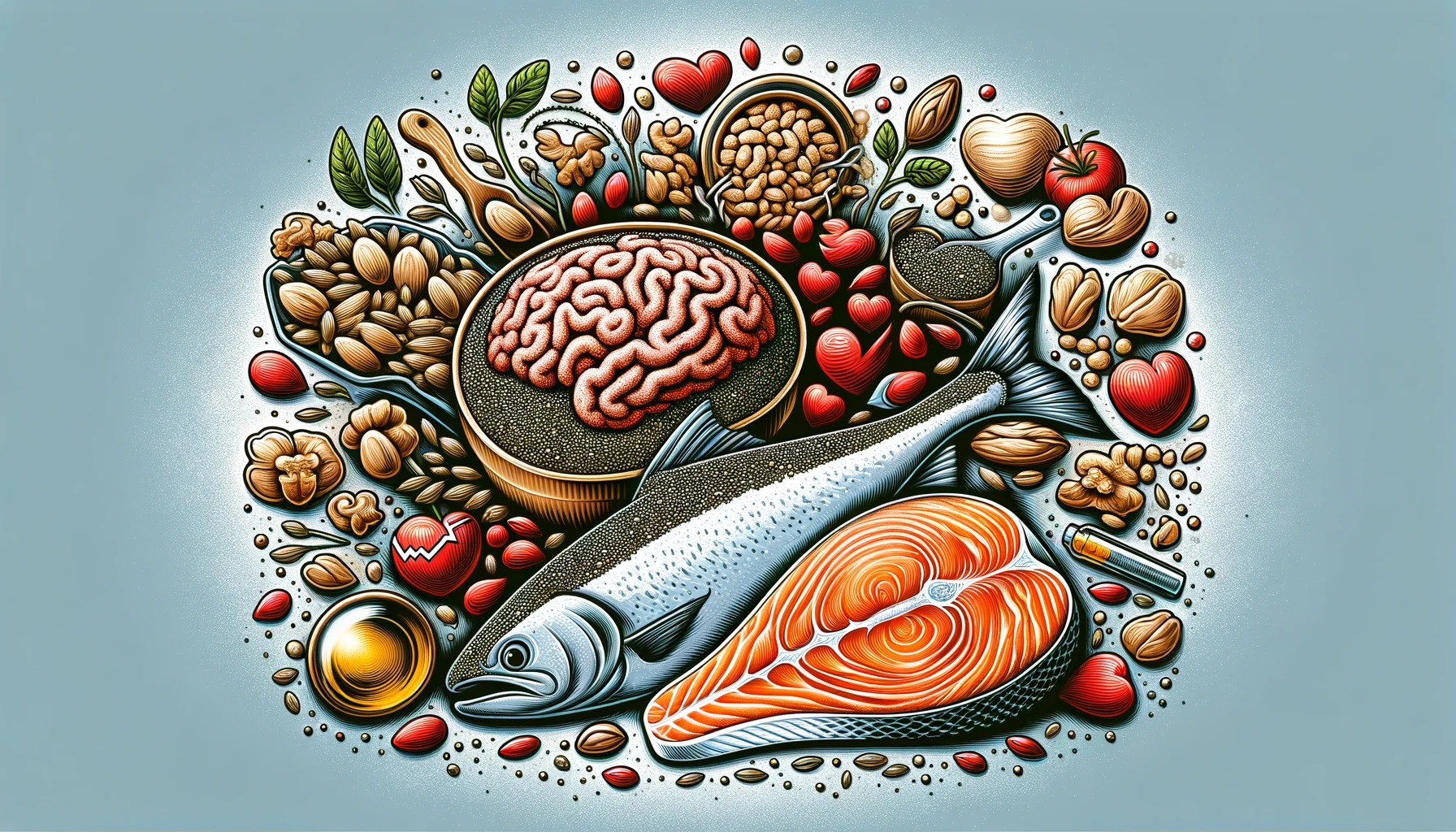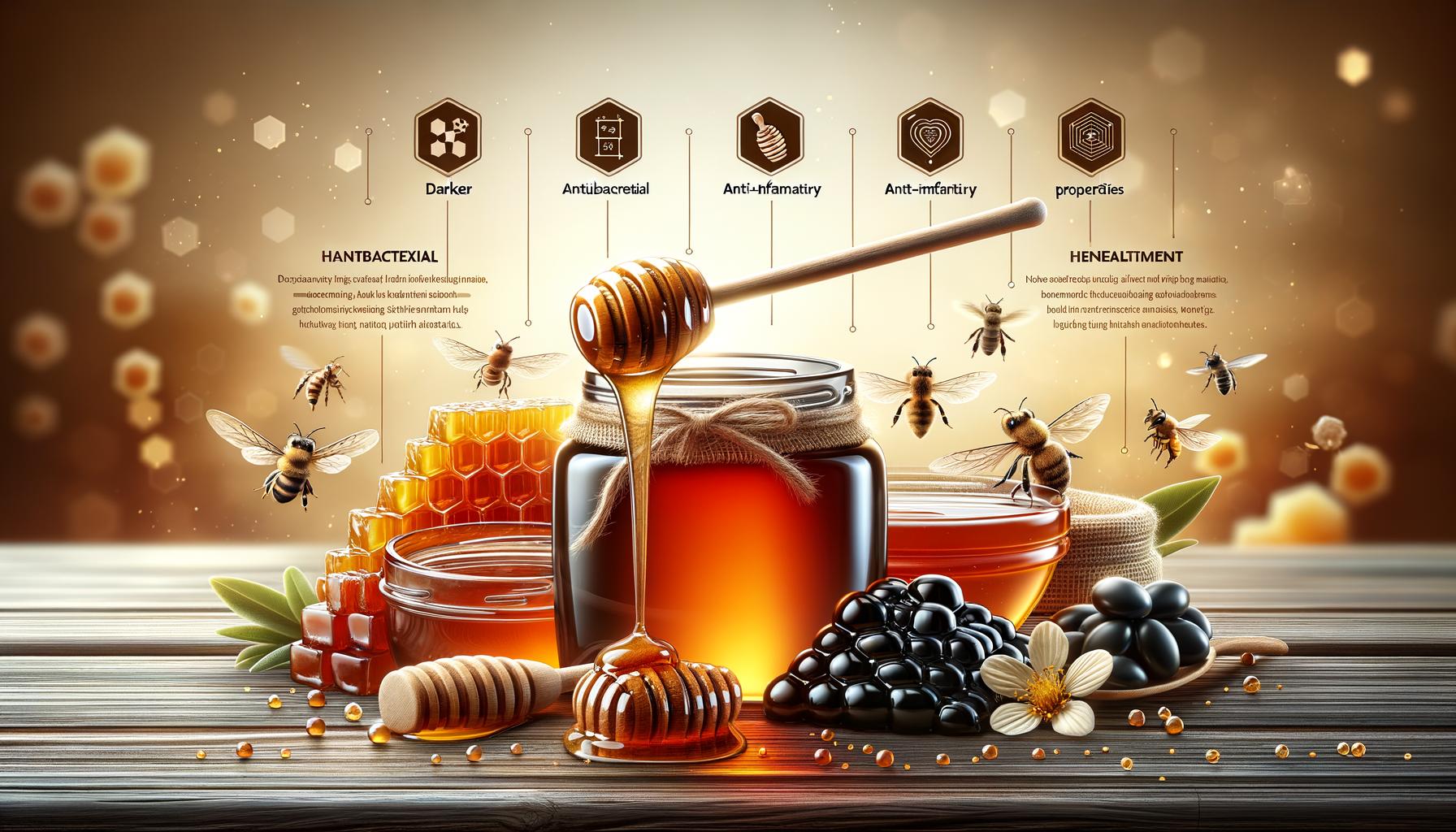· nutrition · 13 min read
The Hidden Strength of Broccoli: Unveiling the Power Within
Dive into the surprising nutritional benefits of broccoli, and discover how this common vegetable rivals traditional protein sources like steak.

In This Post
The Fact Why Should I Care How To Put In Action Start Tomorrow Guide How does it effect my ability to focus How does it impact my daily life How does it help me make friends How does it help me manage stress How does it effect my mood Summary: Remember Refresher Checklist The Full Research Article CitationsPrint Out The Tomorrow Checklist!
Sign up for our newsletter and receive a copy today, so that, you can start tomorrow! Or the next day, or the day after that. I forget everything and starting things is hard at least for me so these checklists are godsend.
Print Out The Remember Refresher Checklist!
Sign up for our newsletter and download your own copy of the Remember Refresher Checklist, so that, you can easily put it on your fridge and help you stay on target towards your WHY. Every little bit helps.
An Unlikely Hero in Nutrition
When it comes to superheroes of the dietary world, broccoli doesn’t typically leap to mind. Yet, this unassuming green vegetable harbors a wealth of nutritional power within its florets and stems. Most people are aware that broccoli is good for health, but the extent of its nutritive prowess often remains underappreciated.
Introduction to Broccoli’s Nutritional Value
Broccoli, a member of the cruciferous vegetable family, is lauded for its low caloric but highly nutrient-dense profile. Serving as a rich source of vitamins C and K, fiber, and a variety of antioxidants, it plays a crucial role in a balanced diet. Here’s a quick checklist of broccoli’s standout nutrients:
- Vitamin C: Acts as an antioxidant to combat bodily inflammation and boosts the immune system.
- Vitamin K: Essential for bone health and wound healing.
- Fiber: Promotes digestive health and aids in maintaining a healthy body weight.
- Antioxidants: Such as sulforaphane, which may have anti-cancer properties.
The Surprising Fact: Broccoli vs. Steak Protein Content
The comparison between broccoli and steak, particularly in protein content, often surprises many. While steak is undoubtedly rich in protein, broccoli presents an excellent plant-based alternative for those seeking to diversify their protein sources or follow a vegetarian or vegan diet. Here’s a breakdown of the nutritional face-off:
- Protein Content: Broccoli contains about 2.8 grams of protein per 100 grams, whereas steak boasts around 25 grams per 100 grams. While steak offers more protein in a smaller quantity of food, broccoli’s protein comes with lower calories and beneficial nutrients absent in meat.
- Caloric Content: Broccoli offers a significantly lower calorie count, providing a compelling option for individuals monitoring their caloric intake while trying to meet their protein needs.
- Nutrient Profile: Unlike steak, broccoli provides a multitude of vitamins and minerals necessary for a healthy body function, alongside its protein content.
The verdict? While steak may be the go-to source for protein, broccoli offers a comprehensive package of proteins, essential nutrients, and health benefits, challenging traditional views on dietary protein sources.
Diving Deeper into Broccoli’s Nutritional Profile
When exploring the myriad of benefits associated with broccoli, its nutritional profile stands out as particularly impressive. Known for its verdant appearance and often labeled as one of the superfoods, broccoli’s health benefits extend far beyond its plant-based protein content. Let’s delve into the nuances of what makes broccoli a powerhouse of nutrition.
Understanding Protein Quality and Quantity in Broccoli
The quality of protein found in broccoli might surprise many, especially when considering its plant-based origin. Broccoli contains all nine essential amino acids, making it a complete protein source, albeit in smaller quantities compared to animal-based proteins. The digestibility-corrected amino acid score (DCAAS) for broccoli is a metric that places it favorably among plant-based protein sources, although it trails behind the scores typically found in meats and dairy products.
The notion that broccoli and other green vegetables can’t serve as adequate protein sources is outdated. A closer examination reveals that, gram for gram, broccoli has more protein than steak. However, because broccoli has a lower calorie density, larger volumes must be consumed to ingest the same amount of protein. This isn’t necessarily a drawback, as it simultaneously allows for the intake of other beneficial nutrients without a significant caloric increase.
Broccoli’s Comprehensive Nutrient Composition
Broccoli’s appeal as a dietary staple extends well beyond its protein content. Its comprehensive nutrient composition includes an array of vitamins, minerals, and fiber, all of which contribute to its status as a nutrient-dense food.
Vitamins and Minerals Galore
Broccoli is rich in a variety of vitamins and minerals essential for health:
- Vitamin C: A single cup of broccoli can provide more than the recommended daily intake of Vitamin C, crucial for immune system function and skin health.
- Vitamin K: Essential for blood clotting and bone health.
- Folate (B9): Important for normal tissue growth and cell function, making it particularly important for pregnant women.
- Potassium: Helps in maintaining blood pressure levels.
- Iron and Zinc: Though present in smaller amounts compared to animal sources, broccoli provides essential minerals important for oxygen transport and immune function.
Fiber Content and Its Benefits
The fiber content in broccoli is another aspect of its nutritional profile that cannot be overlooked. Dietary fiber is essential for maintaining healthy digestive system functions. Here are some key benefits:
Promotes Regularity: Helps prevent constipation and maintain a healthy digestive tract.
Supports Weight Management: Fiber-rich foods like broccoli can help in weight management by promoting feelings of fullness, which may reduce overall caloric intake.
Blood Sugar Control: Consuming fiber can slow down the absorption of sugar, helping to control blood sugar levels.
Checklist for Maximizing Broccoli’s Nutritional Benefits:
- Include broccoli in multiple meals throughout the week.
- Steam or eat broccoli raw to preserve its nutrient profile.
- Pair broccoli with other nutrient-dense foods for a balanced diet.
- Explore creative ways to incorporate broccoli into your diet, like in soups, salads, or as a pizza topping.
Understanding the comprehensive nutrient composition of broccoli and the high-quality protein it provides offers a strong case for including this cruciferous vegetable in a balanced diet. Its role in supporting overall health, from immune function to disease prevention, underlines the importance of viewing broccoli not just as an alternative protein source but as a cornerstone of nutritional well-being.
The Broccoli Benefit: Beyond Protein
The Antioxidant Power of Broccoli
While broccoli’s protein content might draw people in, its antioxidant offerings keep them coming back. Loaded with a powerful array of antioxidants such as sulforaphane, broccoli offers more than muscle-building capabilities; it provides a shield against oxidative stress. This stress is implicated in aging and numerous disease processes. By neutralizing harmful free radicals, the antioxidants in broccoli help protect cellular integrity and function.
Broccoli and Its Role in Disease Prevention
Fighting Cancer with Cruciferous Vegetables
Among the pantheon of green vegetables, broccoli stands out for its cancer-fighting prowess, primarily attributed to its cruciferous family roots. Research has consistently shown that compounds in broccoli can inhibit the growth of cancer cells, making it a potent ally in cancer prevention. Sulforaphane, in particular, has been spotlighted for its ability to target and disable cancerous cells while leaving healthy cells untouched. This selective targeting makes broccoli and other cruciferous vegetables indispensable in a disease prevention diet.
Heart Health and Broccoli: A Green Ally
The benefits of broccoli extend well into cardiovascular health. The fiber, antioxidants, and vitamins (especially K and C) found in broccoli work synergistically to support heart health. Fiber helps reduce cholesterol levels, antioxidants protect against arterial damage, and vitamin K prevents calcium buildup in our arteries, ensuring smooth blood flow and reducing heart disease risk.
Checklist: Incorporating Broccoli for Disease Prevention
- Include broccoli in at least three meals per week to harness its antioxidant power.
- Experiment with different cooking methods like steaming, roasting, or consuming it raw in salads to maximize nutrient retention.
- Pair broccoli with other cruciferous vegetables like Brussels sprouts or kale for a compounded anti-cancer effect.
- Make broccoli a staple in heart-healthy diets by using it as a side dish or a main course ingredient.
- Consider broccoli sprouts as an alternative. They’re packed with higher concentrations of sulforaphane than mature plants.
By delving into the broccoli benefit beyond its protein content, we uncover a vegetable that’s not just about building stronger muscles but also about fostering a robust, disease-resistant body. Whether it’s fighting against cancer or safeguarding heart health, broccoli’s powerful, nutrient-dense makeup makes it a key player in a balanced, health-forward diet.
Making the Switch: Incorporating More Broccoli into Your Diet
The incredible nutritional profile of broccoli opens up avenues for not only enhancing our diet but also for exploring innovative culinary experiences. With a shift in mindset and some creativity, incorporating more broccoli into daily meals becomes not only manageable but also enjoyable.
Creative Ways to Prepare and Enjoy Broccoli
Broccoli, with its versatile texture and flavor, can be a star ingredient in a myriad of dishes ranging from simple to gourmet. It’s about finding the right recipes and techniques to elevate this green vegetable from a mere side dish to the main course or a delicious component of a meal.
- Roasting brings out a caramelized, slightly nutty flavor in broccoli. Tossed with a bit of olive oil, salt, and your choice of seasonings, roasted broccoli can transform into a crispy, addictive snack or side.
- Steaming is perfect for those looking for a softer texture while preserving its rich nutrients. Season steamed broccoli with a squeeze of lemon juice and a sprinkle of chili flakes for a simple yet tasty dish.
- Blending into soups and sauces can be an ingenious way to sneak more greens into meals, especially for those a bit reluctant to the taste of broccoli. A creamy broccoli soup or a broccoli pesto sauce over pasta can become family favorites.
- Stir-frying with a variety of other vegetables, proteins, and sauces can make a vibrant, nutrient-packed meal. Quick and easy, it’s perfect for weeknight dinners.
Balancing a Diet: Protein Sources from Plants
Incorporating broccoli as a significant source of protein involves rethinking the plant’s role on our plates and exploring its synergy with other plant-based foods for a well-rounded, nutrient-dense diet.
Meal Planning with Broccoli
- Breakfast: Start the day with a broccoli and tofu scramble, seasoned with turmeric, garlic, and onions, offering a protein-rich meal that energizes.
- Lunch: A hearty broccoli quinoa salad with mixed greens, nuts, and a lemon tahini dressing can serve as a perfect mid-day meal, packed with proteins and fibers.
- Dinner: Finish with a fulfilling broccoli and chickpea curry over brown rice, combining flavors and nutrients in a comforting dish.
Combining Broccoli with Other Protein Sources
To ensure a balanced intake of essential amino acids, it’s crucial to pair broccoli with other plant-based proteins. Here’s a checklist for effectively combining protein sources:
- Legumes: Beans, lentils, and chickpeas not only complement broccoli in dishes but also add to the protein count, making meals more satiating.
- Whole Grains: Quinoa, brown rice, and barley are not just great bases for broccoli-rich meals; they also provide complementary proteins and fibers.
- Nuts and Seeds: Almonds, chia seeds, and flaxseeds can add a crunch to broccoli dishes while boosting their protein and Omega-3 fatty acid content.
- Tofu and Tempeh: These soy-based proteins pair wonderfully with broccoli, whether in stir-fries, salads, or grillings, adding significant amounts of plant-based protein to your diet.
In conclusion, integrating more broccoli into your diet is not only a step towards a healthier lifestyle but also an opportunity to rediscover and enhance your meals with this nutrient powerhouse. By exploring various preparation methods and combining broccoli with other plant proteins, it becomes easier and more enjoyable to meet your nutritional needs exclusively through plant-based sources.
FAQs
Can Broccoli Truly Replace Meat in Terms of Protein?
The question of whether broccoli can replace meat in terms of protein is intriguing. While broccoli is heralded for its nutritional benefits, it’s essential to understand that protein quality and content vary significantly between plant-based sources like broccoli and animal sources such as meat. Broccoli contains all nine essential amino acids, making it a complete protein, but in lower quantities compared to meat.
For someone looking to substitute meat with broccoli or other plant-based protein sources, it’s crucial to consider not just the protein content but also the bioavailability and the broader nutritional profile. Broccoli, apart from protein, offers a bundle of vitamins, minerals, fiber, and antioxidants, which meat lacks. Thus, while broccoli can supplement a diet with high-quality protein, relying solely on broccoli for protein needs without diversification could lead to imbalances.
How Much Broccoli Would One Need to Eat to Match a Steak’s Protein?
To match the protein content found in a typical 6-ounce steak, which contains about 38 grams of protein, one would need to consume a considerably larger volume of broccoli. Specifically:
- A cup of chopped broccoli (about 91 grams) contains roughly 2.6 grams of protein.
- To equate to the 38 grams of protein found in a steak, one would require approximately 14.5 cups of broccoli, equating to around 1319 grams or nearly 1.3 kilograms of broccoli.
Clearly, while broccoli is a nutritious vegetable rich in protein and other essential nutrients, the sheer volume required to match the protein content of meat makes it an impractical sole protein source.
Are There Any Downsides to Consuming Too Much Broccoli?
While integrating broccoli into your diet can offer numerous health benefits, there are potential downsides to overconsumption:
- Digestive Issues: High intakes of fiber from consuming large amounts of broccoli can lead to gastrointestinal discomfort, gas, and bloating for some people.
- Interference with Medication: Broccoli contains vitamin K, which plays a crucial role in blood clotting. Consuming large amounts can interfere with anticoagulant medications.
- Iodine Absorption: Broccoli belongs to the cruciferous vegetable family, which can impact iodine absorption in the body, potentially affecting thyroid function if consumed in large quantities daily.
Checklist for Moderating Broccoli Consumption
- Diversify Your Proteins: Include a variety of protein sources to meet your dietary needs without over-relying on broccoli.
- Balance Your Meals: Combine broccoli with other vegetables, grains, and protein sources for a balanced diet.
- Listen to Your Body: Pay attention to how your body responds to increased broccoli intake and adjust accordingly.
- Consult With a Professional: If you are on medication or have specific health concerns, consider consulting with a healthcare provider or a dietitian.
In summary, while broccoli is a powerhouse of nutrition and can serve as a part of a protein-rich diet, it should not be viewed as a sole protein source. Understanding its role within a well-rounded dietary approach is key to maximizing its benefits without encountering potential drawbacks.
The Future of Plant-Based Nutrition
The journey through the extraordinary world of broccoli underscores a broader, profound shift towards plant-based nutrition. As the global community becomes increasingly aware of the environmental and health implications of traditional diets, the pivot towards foods that are not only sustainable but also packed with essential nutrients is inevitable. Broccoli, with its astonishing range of vitamins, minerals, and protein content, exemplifies the potential that plant-based sources hold for the future of nutrition. It represents a step forward into a world where our diet choices align more closely with the needs of our planet and our bodies.
Encouragingly, the momentum behind plant-based nutrition is gaining pace, bolstered by scientific research and heightened consumer awareness. The evolution of dietary patterns towards more nutrient-dense, plant-oriented diets promises not only better health outcomes but also a significant reduction in carbon footprints. With each green choice, we move a step closer to a sustainable future, underscoring the intertwined destiny of human health and environmental health.
Recap: The Hidden Strength of Broccoli
Reflecting on our exploration of broccoli, it becomes clear that this unassuming green vegetable harbors a wealth of nutritional benefits that extend far beyond its protein content. The discussion unfolded the layers of nutritional goodness packed in broccoli, including its role in:
- combatting diseases,
- supporting heart health through antioxidative properties,
- and offering a cornucopia of vitamins and minerals alongside fiber.
This cumulative understanding not only elevates broccoli’s status to a superfood but also champions the broader category of cruciferous vegetables and plant-based protein sources. Indeed, broccoli stands as a testament to the incredible power that lies in plant-based foods, inviting us to reconsider and redefine what constitutes a healthy, balanced diet.
- Acknowledges the nutritional and environmental impacts of plant-based foods.
- Highlights the dense nutrient profile of broccoli.
- Encourages a reevaluation of diet towards more sustainable, plant-based choices.
- Positions broccoli as a key player in the future of nutrition.
As we look forward, the narrative around plant-based nutrition is poised for a transformative phase. The dialogue has shifted from mere nutritional adequacy to encompass environmental sustainability and ethical considerations. Broccoli, along with its fellow green warriors, leads the charge, offering a blueprint for a healthier, more sustainable future. The green revolution on our plates is not just about the food we eat; it’s about the legacy we wish to leave for the generations to come.
Recommended Resources
- cruciferous-vegetables
- plant-based-protein-sources
- nutrient-dense-foods
- antioxidants-in-vegetables
- disease-prevention-diet
- fiber-rich-diet
- vegan-and-vegetarian-nutrition
- healthy-eating-choices
- nutritional-comparison
- green-vegetables-benefits
- superfoods
- caloric-intake-and-nutrient-quality
- alternative-protein-sources
- balanced-diet
- nutritional-science





